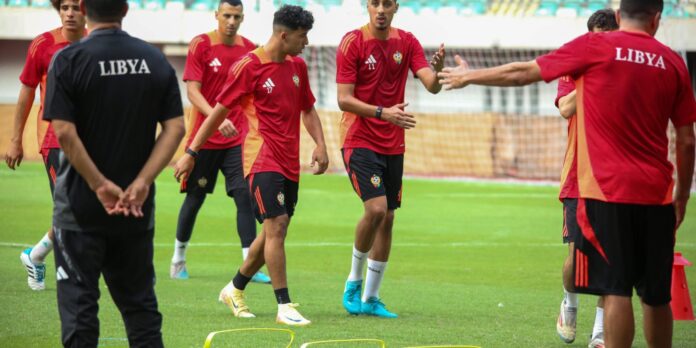The Confederation of African Football (CAF) has once again tightened its disciplinary grip, imposing hefty fines and match restrictions on Libya following a heated 2025 Africa Cup of Nations (AFCON) qualification clash with Benin. Despite Benin being the apparent victims of Libyan aggression, the West African nation was not spared, receiving its own set of penalties for a separate infraction.
CAF announced Libya’s punishment after incidents during and following their November 18 game against Benin in Benghazi, where the Libyan police and team officials reportedly attacked the visiting players and staff.
“The Libyan Football Federation was ordered to play its next two official national team matches behind closed doors,” CAF stated. “A fine of $50,000 was also imposed for violating articles 82 and 151 of the CAF Disciplinary Code.”
The Fallout in Benghazi
The game, which ended in a goalless draw, secured Benin’s qualification for AFCON 2025 while dashing Libya’s hopes. However, the match’s aftermath was marred by chaos as Libyan authorities allegedly assaulted Benin’s players and coaching staff.
Gernot Rohr, head coach of Benin’s team, recounted the ordeal: “We were attacked by Libyan police and fans. My players were struck with batons, and some required medical attention after the incident.”
Videos circulating online showed Benin’s players nursing injuries with ice packs, providing a grim testament to the reported violence.
Libya’s Misconduct Pattern
This latest sanction against Libya comes barely three months after CAF reprimanded the country for its treatment of Nigeria’s Super Eagles. In October, Nigeria’s team endured a grueling experience when their flight was diverted to Al-Abraq Airport under dubious circumstances.
The Nigerian players and officials were left stranded for over 20 hours without food or water before their match in Benghazi. CAF responded by fining Libya $50,000 and awarding Nigeria three points and three goals for the forfeited match.
CAF labeled Libya’s actions as “inhumane treatment,” further spotlighting the North African nation’s ongoing issues with sportsmanship and hospitality during international fixtures.
Benin Caught in the Crossfire
Ironically, Benin, despite being the victim in Benghazi, also faced CAF’s disciplinary hammer. The Beninese Football Federation was fined $5,000 for failing to cooperate with CAF’s disciplinary investigation following their October qualifier against Rwanda.
CAF further sanctioned Benin with an additional $50,000 fine—$25,000 of which is suspended—citing the misconduct of Benin officials during the same match.
Broader Implications
These back-to-back disciplinary actions underscore CAF’s increasing intolerance for misconduct on and off the pitch as Africa gears up for the 2025 AFCON in Morocco.
Libya’s repeated infractions suggest a pattern of defiance against CAF’s regulations. The governing body has been explicit in its efforts to maintain the integrity of African football and curb violence in its competitions.
For Benin, the penalties highlight the need for greater compliance with CAF’s disciplinary protocols, even when dealing with hostile environments.
CAF’s Other Disciplinary Decisions
The fallout from the Libyan-Benin clash wasn’t CAF’s only recent ruling. Guinea’s appeal to disqualify Tanzania from the 2025 AFCON was dismissed. Guinea had alleged that Tanzania fielded a substitute wearing an unregistered jersey number during a qualifier. CAF, however, deemed the evidence insufficient to expel Tanzania.
These decisions demonstrate CAF’s robust enforcement of its disciplinary framework, signaling to all member nations that no misconduct will go unchecked.
A Call for Change
As Libya continues to face scrutiny for its actions, the incidents raise broader concerns about the treatment of visiting teams across Africa. While football serves as a unifying sport, the hostility displayed in certain regions threatens to undermine the continent’s growing reputation on the international stage.
“CAF’s rulings send a strong message,” said a sports analyst. “But the responsibility lies with national football federations to ensure their teams and fans adhere to the principles of fair play and respect.”

